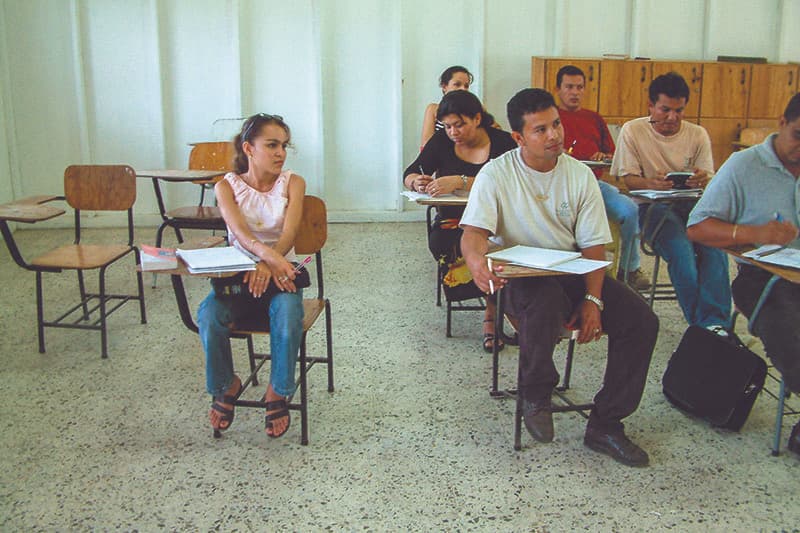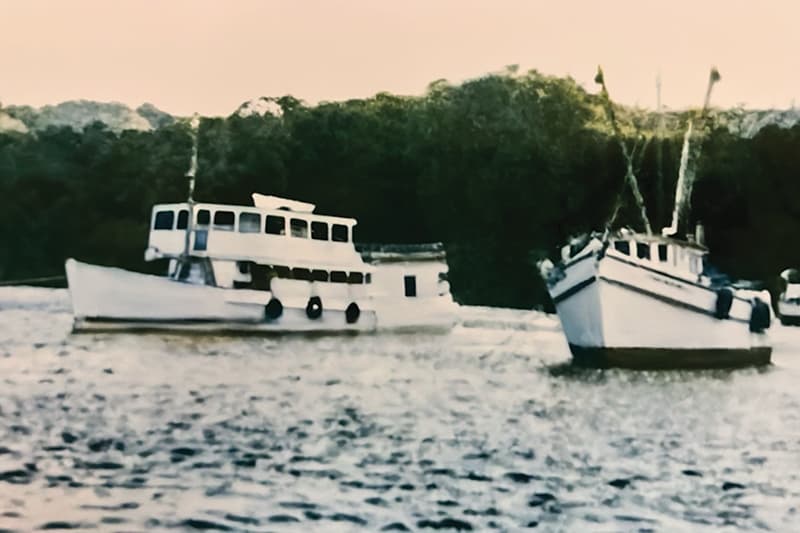
One of these endeavors was the Bay Islands University that was founded in 2003. There was enough enthusiasm to get the institution off the ground — there were willing American and Honduran professors, students, and money backers. The space was rented from the Seventh Day Adventist School in French Harbor.
For-profit universities came to the island in the late 2000s. UNAH-Curla tried its remote learning classes. The for-profit UTH has also filled a gap and has even opened a campus in French Cay in 2025.
In many ways, the for-profit universities serve as a catch-up for the ineffective government middle school educational structure. The semi-literate and under educated 18- to 19-year-olds see a university diploma as a way to get a job in the island’s tourist industry or a business.
Things should and could be much better. Nearby Cayman Islands, with a population of 90,000, has three universities, both state and private. They even offer master’s degrees. Bay Islands have a similar area as Cayman Islands, and the Honduran department’s population surpasses 130,000 people. Now is the time to act. The cost of opening a higher learning institution are much lower in the Bay Islands, but will rise as time goes on.
Future University of Roatan can focus on marine biology.
There is one particular and little-known example of a great Honduran private university that could serve as an example. Zamorano Pan-American Agricultural School was founded in the Yeguare Valley east of Tegucigalpa in 1941. It serves 1,250 students with a focus on agriculture education, and while it is small, it is recognized by some as the best university in Honduras.
Similar to how Zamorano University has been one of the most renowned agriculture universities in Latin America, the future University of Roatan can focus on marine biology. With its proximity to the sea and reef, Roatan is a perfect place to establish a university with such specialization.
There are only a few schools specializing in marine science in Latin America, without the natural assets of Roatan. There is the Oceanography Department at the University of São Paulo, and the Marine Science Department at Universidad del Valle, in Cali, Colombia. Neither of them have the proximity to the sea, reef, or marine life that Roatan does.
In some respects, back in the early 1980s, Roatan found itself at analogous crossroads. Island families were getting tired of sending their children to the mainland to receive quality education. That required separation from families, extra expenses, and the loss of family contact. In 1983, Mrs. Cheryl de Galindo, Mrs. Mireya Warren, and Jane Austin had the initial idea for a Roatan private school. The classes started with 35 students; 40 years later, ESBIR has around 300 students, 37 classrooms, and sits on an ample 2.2-acre property in the northern part of Coxen Hole.
Someone thinking about an addition to the private grade school and high school education on Roatan is Dr. Raymon Schmidt, who had been superintendent at San Pedro’s Escuela Internacional Sampedrana (EIS) for three years. Establishing a similar school from scratch is not cheap, and according to Schmidt, it means a $15 million to $20 million investment. It also would require investors willing to back this institution financially for years to come.
Today, two big urban centers in Honduras take pride in having the best schools. Escuela Internacional Sampedrana (EIS), founded in 1953, has 1,800 students and is considered the best school in Honduras. The other large, well-known school is the American School of Tegucigalpa, established in 1946 by American-based companies based in the Honduran capital. “Those are the king and the queen [of schools] in Honduras,” says Schmidt.
Closer to Roatan and attended by some islanders in the 1970s is La Ceiba’s Mazapán School. It was established in 1928 by Standard Fruit Company on a sprawling five-acre campus and offers education to 300 students.
Schmidt believes that the benefits of such a school would benefit the island indirectly. There would be a boost in the intellect of newcomers to the island. There would be more families interested to come here from mainland Honduras just for the extra opportunities given to their children. There are other benefits: the prestige, the attractiveness of living, working and a better base for human capital. “[School] is the catalyst; that is the spark that will bring business to the island,” said Schmidt. “Even if the school doesn’t generate money, it will do so indirectly with all the other businesses it is going to attract.”
Schmidt wants to start with around 200 students, and a master plan is to have 1,200 pupils with grounds that have sports facilities and gymnasiums to match. Every week they have academic competitions. “We would actually teach core academics,” said Schmidt.
Knowledge, values and good habits are at a premium.
In many ways, academics and values are the essence of the issue, since formal education is not what it used to be. Modern education focuses on preparing students to be obedient and competent future workers who don’t question things.
The educational system in the U.S., Europe, and other countries have been weaponized against parents with traditional and Christian beliefs. The corrupting brainwashing made amazing strides in the U.S. educational system, catching many educators off guard. This in turn created a fertile ground for woke ideology of Cultural Marxism that has infiltrated schools even on Roatan. “Ten years ago, it wasn’t like this,” admits Schmidt.
Unfortunately, most parents, good educators, and well-meaning school administrators do not understand the origin of this war for the minds of the young. Often they are not even familiar with the techniques and methods used to undermine the authority of parents, traditions, and Christian values of their children.
The students are told that there is no objective, no absolute truth, and that moral values are all relative depending on place and context. Christian, Western morals and values have been either removed from schools or they have become an unrecognizable meshing of different, often contradictory and opposing religious views.
Let us hope that Roatan will be able to withstand the gradual advances of Cultural Marxism. There are still old islanders, well into their 80s and 90s, who recall receiving short, albeit classical education in one-room classrooms on the island. That education aimed at developing the whole individual by teaching and promoting virtue and aspiration of wisdom. The ultimate goal was for a pupil to properly know and glorify God.
The original, Christian educational goal of developing individuals have been replaced by making cookie-cutter, compliant students able to follow orders and fulfill tasks needed to get a job.
We now live in times where not education, but knowledge, values and good habits are at a premium. Using AI for teaching children or university students is problematic. In fact, much of this technology is enslaving and dehumanizing our children in classrooms and in our homes. The answer to the addictive presence of phones, apps and social media is not technical, but spiritual. It is paramount to recognize the need for both the divine and human element in education.







